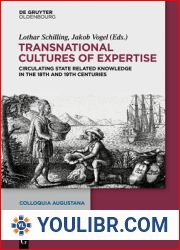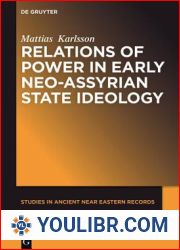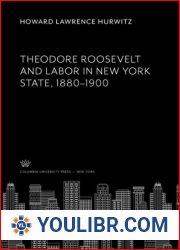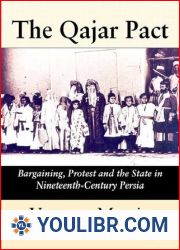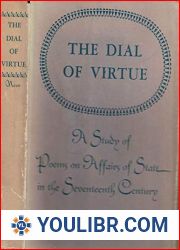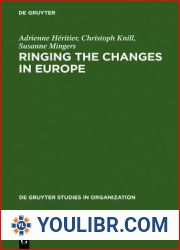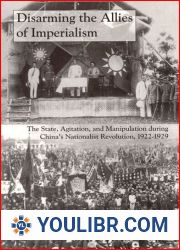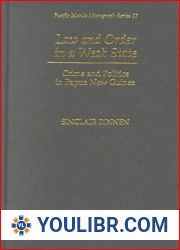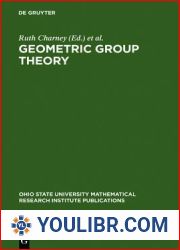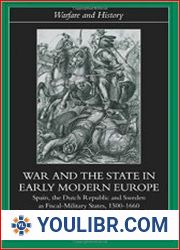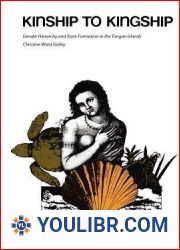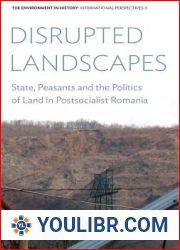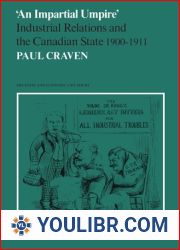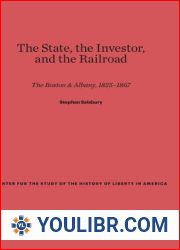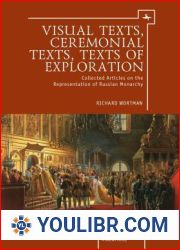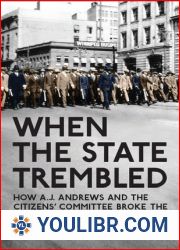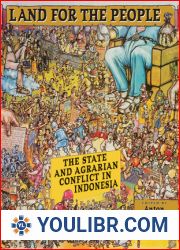
BOOKS - Jews and the Imperial State: Identification Politics in Tsarist Russia

Jews and the Imperial State: Identification Politics in Tsarist Russia
Author: Eugene M. Avrutin
Year: 2018
Format: PDF
File size: PDF 42 MB
Language: English

Year: 2018
Format: PDF
File size: PDF 42 MB
Language: English

Jews and the Imperial State: Identification Politics in Tsarist Russia The book "Jews and the Imperial State" by Eugene M. Avrutin offers a fresh perspective on the historical relationship between the Russian Empire and its Jewish population, challenging the traditional view of government policies towards Jews as oppressive and negative. The author argues that the identification of Jews was not only a means of control but also an opportunity for individuals to shape their own lives within the complex legal framework of the empire. This book provides a nuanced understanding of how Jews navigated the bureaucratic maze of rights, privileges, and exemptions to create their own paths in a constantly changing environment. The story begins at the end of the 18th century, when European governments began to manage their populations more effectively. In the Russian Empire, this shift led to the growth of government institutions and the need to identify Jews in order to regulate their movement and diversity. Passports, vital statistics records, and censuses became essential tools for the state to understand and control its population. However, these documents were not just about controlling Jews; they also provided opportunities for individuals to negotiate with the state and shape their own destinies. Avrutin's research draws from previously unexplored archival materials to reveal how Jews responded to the system of government in various ways.
Евреи и имперское государство: политика идентификации в царской России Книга Евгения М. Аврутина «Евреи и имперское государство» предлагает свежий взгляд на исторические отношения между Российской империей и её еврейским населением, бросая вызов традиционному взгляду на политику правительства в отношении евреев как на репрессивную и негативную. Автор утверждает, что идентификация евреев была не только средством контроля, но и возможностью для отдельных лиц формировать свою собственную жизнь в сложных правовых рамках империи. Эта книга дает тонкое понимание того, как евреи шли по бюрократическому лабиринту прав, привилегий и исключений, чтобы создать свои собственные пути в постоянно меняющейся среде. История начинается в конце XVIII века, когда европейские правительства стали более эффективно управлять своим населением. В Российской империи этот сдвиг привёл к росту государственных институтов и необходимости идентификации евреев с целью регулирования их передвижения и разнообразия. Паспорта, записи статистики естественного движения населения и переписи стали важными инструментами для государства, чтобы понять и контролировать свое население. Однако эти документы касались не только контроля над евреями; они также предоставляли возможности отдельным лицам договариваться с государством и формировать собственные судьбы. Исследование Аврутина опирается на ранее неизученные архивные материалы, чтобы выявить, как евреи реагировали на систему управления различными способами.
s Juifs et l'État impérial : la politique d'identification dans la Russie tsariste livre d'Eugène M. Avrutin, « s Juifs et l'État impérial », offre une nouvelle vision des relations historiques entre l'Empire russe et sa population juive, remettant en question la vision traditionnelle de la politique gouvernementale à l'égard des Juifs comme étant répressive et négative. L'auteur affirme que l'identification des Juifs n'était pas seulement un moyen de contrôle, mais aussi une occasion pour les individus de façonner leur propre vie dans le cadre juridique complexe de l'empire. Ce livre donne une compréhension subtile de la façon dont les Juifs ont parcouru le labyrinthe bureaucratique des droits, des privilèges et des exceptions pour créer leurs propres voies dans un environnement en constante évolution. L'histoire commence à la fin du XVIII siècle, lorsque les gouvernements européens ont commencé à gérer plus efficacement leur population. Dans l'Empire russe, ce changement a conduit à la croissance des institutions publiques et à la nécessité d'identifier les Juifs afin de réglementer leurs mouvements et leur diversité. s passeports, les registres de l'état civil et les recensements sont devenus des outils importants pour que l'État comprenne et contrôle sa population. Cependant, ces documents ne concernaient pas seulement le contrôle des Juifs ; ils ont également permis aux individus de négocier avec l'État et de se forger leur propre destin. L'étude d'Avrutin s'appuie sur des documents archivés inexplorés pour déterminer comment les Juifs ont réagi au système de gestion de diverses façons.
Judíos y Estado imperial: una política de identificación en la Rusia zarista libro de Eugenio M. Aurutin «Judíos y Estado imperial» ofrece una visión fresca de las relaciones históricas entre el Imperio ruso y su población judía, desafiando la visión tradicional de la política del gobierno hacia los judíos como represiva y negativa. autor sostiene que la identificación de los judíos no sólo era un medio de control, sino también una oportunidad para que los individuos moldearan sus propias vidas dentro del complejo marco legal del imperio. Este libro proporciona una sutil comprensión de cómo los judíos siguieron el laberinto burocrático de derechos, privilegios y exclusiones para crear sus propios caminos en un entorno en constante cambio. La historia comienza a finales del siglo XVIII, cuando los gobiernos europeos comenzaron a administrar a su población con mayor eficacia. En el Imperio ruso, este cambio llevó al crecimiento de las instituciones estatales y a la necesidad de identificar a los judíos con el objetivo de regular su movimiento y diversidad. pasaportes, los registros de estadísticas vitales y los censos se han convertido en herramientas importantes para que el Estado entienda y controle a su población. n embargo, estos documentos no se referían únicamente al control de los judíos; también ofrecían oportunidades para que los individuos negociaran con el Estado y formaran sus propios destinos. estudio de Aurutin se basa en materiales de archivo previamente inexplorados para revelar cómo los judíos respondieron al sistema de gobierno de varias maneras.
Judeus e Estado Imperial: Política de identificação na Rússia real Livro de Evgeniy M. Avroutin «Judeus e Estado Imperial» oferece uma visão recente das relações históricas entre o Império Russo e sua população judaica, desafiando a visão tradicional do governo sobre os judeus como repressiva e negativa. O autor afirma que a identificação dos judeus não era apenas um meio de controle, mas também uma oportunidade para que indivíduos formassem suas próprias vidas dentro dos complexos marcos legais do império. Este livro oferece uma compreensão sutil de como os judeus seguiram um labirinto burocrático de direitos, privilégios e exceções para criar seus próprios caminhos em um ambiente em constante mudança. A história começa no final do século XVIII, quando os governos europeus começaram a gerir melhor a sua população. No Império Russo, essa mudança fez crescer as instituições do Estado e a necessidade de identificar os judeus para regular a sua circulação e diversidade. Passaportes, registros de estatísticas de movimento natural da população e censos tornaram-se ferramentas importantes para o governo compreender e controlar sua população. No entanto, esses documentos não se referiam apenas ao controle dos judeus; eles também ofereciam oportunidades para que indivíduos negociassem com o Estado e formassem seus próprios destinos. O estudo de Avroutin baseia-se em materiais de arquivo antes desconhecidos para identificar como os judeus responderam ao sistema de controle de várias formas.
Ebrei e Stato imperiale: politica di identificazione nella Russia reale Il libro di Evgeny M. Aurutin «Ebrei e Stati imperiali» offre una visione recente delle relazioni storiche tra l'impero russo e la sua popolazione ebraica, sfidando la tradizionale visione della politica del governo contro gli ebrei come repressiva e negativa. L'autore sostiene che l'identificazione degli ebrei non era solo un mezzo di controllo, ma anche una possibilità per gli individui di formare la propria vita in un complesso quadro giuridico dell'impero. Questo libro offre una delicata comprensione di come gli ebrei camminavano nel labirinto burocratico di diritti, privilegi ed esclusioni per creare le proprie strade in un ambiente in continua evoluzione. La storia inizia alla fine del XVIII secolo, quando i governi europei cominciarono a gestire la loro popolazione in modo più efficiente. Nell'impero russo questo cambiamento ha portato alla crescita delle istituzioni statali e alla necessità di identificare gli ebrei per regolare i loro movimenti e la loro diversità. Passaporti, registrazioni statistiche del movimento naturale della popolazione e censimenti sono diventati strumenti importanti per lo stato per comprendere e controllare la propria popolazione. Ma questi documenti non riguardavano solo il controllo degli ebrei; offrivano anche la possibilità per gli individui di negoziare con lo Stato e formare i propri destini. La ricerca di Avroutin si basa su materiali di archivio precedentemente inesplorati per scoprire come gli ebrei hanno risposto al sistema di controllo in diversi modi.
Juden und imperialer Staat: Identifikationspolitik im zaristischen Russland Das Buch „Juden und imperialer Staat“ von Evgenij M. Avrutin bietet einen frischen Blick auf die historischen Beziehungen zwischen dem Russischen Reich und seiner jüdischen Bevölkerung und stellt die traditionelle cht der Regierungspolitik gegenüber Juden als repressiv und negativ in Frage. Der Autor argumentiert, dass die Identifizierung von Juden nicht nur ein Mittel der Kontrolle sei, sondern auch eine Möglichkeit für Einzelpersonen, ihr eigenes ben im komplexen rechtlichen Rahmen des Reiches zu gestalten. Dieses Buch gibt einen subtilen Einblick, wie Juden durch ein bürokratisches Labyrinth von Rechten, Privilegien und Ausnahmen gingen, um ihre eigenen Wege in einem sich ständig verändernden Umfeld zu schaffen. Die Geschichte beginnt im späten 18. Jahrhundert, als die europäischen Regierungen begannen, ihre Bevölkerung effizienter zu verwalten. Im Russischen Reich führte diese Verschiebung zu einem Anstieg der staatlichen Institutionen und der Notwendigkeit, Juden zu identifizieren, um ihre Bewegung und Vielfalt zu regulieren. Pässe, Aufzeichnungen von Statistiken über natürliche Bevölkerungsbewegungen und Volkszählungen sind zu wichtigen Instrumenten für den Staat geworden, um seine Bevölkerung zu verstehen und zu kontrollieren. Diese Dokumente betrafen jedoch nicht nur die Kontrolle der Juden; e boten auch Einzelpersonen die Möglichkeit, mit dem Staat zu verhandeln und ihre eigenen Schicksale zu gestalten. Awrutins Forschung stützt sich auf bisher unerforschtes Archivmaterial, um zu zeigen, wie Juden auf verschiedene Weise auf das Managementsystem reagierten.
Żydzi i państwo cesarskie: Polityka identyfikacji w carskiej Rosji Jewgienij M. Avrutin książka „Żydzi i państwo cesarskie” oferuje nowe spojrzenie na historyczne relacje między Imperium Rosyjskiego i jego ludności żydowskiej, kwestionując tradycyjny pogląd polityki rządu wobec Żydów jako represyjne i negatywne. Autor twierdzi, że identyfikacja Żydów była nie tylko środkiem kontroli, ale także okazją dla jednostek do kształtowania własnego życia w złożonych ramach prawnych imperium. Książka ta zapewnia niuansowany wgląd w sposób, w jaki Żydzi poruszali się po biurokratycznym labiryncie praw, przywilejów i wyjątków, aby stworzyć własne ścieżki w nieustannie zmieniającym się środowisku. Historia zaczyna się pod koniec XVIII wieku, kiedy to europejskie rządy zaczęły skuteczniej zarządzać swoją populacją. W Imperium Rosyjskim zmiana ta doprowadziła do wzrostu instytucji państwowych i potrzeby identyfikacji Żydów w celu uregulowania ich ruchu i różnorodności. Paszporty, istotne dane statystyczne i spisy powszechne stały się ważnym narzędziem dla państwa do zrozumienia i kontroli jego populacji. Dokumenty te dotyczyły jednak nie tylko żydowskiej kontroli; zapewniły one również możliwość prowadzenia negocjacji z państwem i kształtowania własnego przeznaczenia. Badania Avrutina opierają się na wcześniej niezbadanych materiałach archiwalnych, aby ujawnić, jak Żydzi reagowali na system kontroli na różne sposoby.
היהודים והמדינה הקיסרית: מדיניות זיהוי ברוסיה הצארית יבגני מ 'אברוטין, ספרו של אברוטין ”היהודים והמדינה הקיסרית” מציע מבט רענן על היחסים ההיסטוריים בין האימפריה הרוסית לאוכלוסייתה היהודית, וקורא תיגר על ההשקפה המסורתית של מדיניות הממשלה כלפי היהודים כדיכוי ושלילי. המחבר טוען כי זיהוי היהודים לא היה רק אמצעי שליטה, אלא גם הזדמנות ליחידים לעצב את חייהם במסגרת המשפטית המורכבת של האימפריה. הספר הזה מספק תובנה ברורה כיצד היהודים ניווטו מבוך ביורוקרטי של זכויות, זכויות וחריגות כדי ליצור את הנתיבים שלהם בסביבה משתנה מתמיד. הסיפור מתחיל בסוף המאה ה-18, כאשר ממשלות אירופה החלו לנהל בצורה יעילה יותר את האוכלוסיות שלהן. באימפריה הרוסית, שינוי זה הוביל לגידול במוסדות המדינה ולצורך לזהות יהודים כדי להסדיר את תנועתם ואת הגיוון שלהם. דרכונים, נתונים סטטיסטיים חיוניים וצנזורים הפכו לכלים חשובים כדי שהמדינה תבין ותשלוט באוכלוסייתה. עם זאת, מסמכים אלה לא עסקו רק בשליטה יהודית; הם גם סיפקו הזדמנויות ליחידים לנהל משא ומתן עם המדינה ולגבש את גורלם. מחקריו של אברוטין מסתמכים על חומרים ארכיוניים שלא נחקרו בעבר כדי לחשוף כיצד הגיבו היהודים למערכת הבקרה בדרכים שונות.''
Yahudiler ve İmparatorluk Devleti: Çarlık Rusya'sında Tanımlama Politikası Yevgeny M. Avrutin'in "Yahudiler ve İmparatorluk Devleti'adlı kitabı, Rus İmparatorluğu ile Yahudi nüfusu arasındaki tarihsel ilişkiye yeni bir bakış getirerek, hükümetin Yahudilere yönelik politikasının baskıcı ve olumsuz olduğu yönündeki geleneksel görüşe meydan okuyor. Yazar, Yahudilerin tanımlanmasının sadece bir kontrol aracı değil, aynı zamanda bireylerin imparatorluğun karmaşık yasal çerçevesi içinde kendi yaşamlarını şekillendirmeleri için bir fırsat olduğunu savunuyor. Bu kitap, Yahudilerin sürekli değişen bir ortamda kendi yollarını oluşturmak için bürokratik haklar, ayrıcalıklar ve istisnalar labirentinde nasıl dolaştıklarına dair nüanslı bir fikir vermektedir. Hikaye, Avrupa hükümetlerinin nüfuslarını daha etkin bir şekilde yönetmeye başladığı 18. yüzyılın sonunda başlıyor. Rus İmparatorluğu'nda bu değişim, devlet kurumlarının büyümesine ve Yahudilerin hareketlerini ve çeşitliliğini düzenlemek için onları tanımlama ihtiyacına yol açtı. Pasaportlar, hayati istatistik kayıtları ve nüfus sayımları, devletin nüfusunu anlaması ve kontrol etmesi için önemli araçlar haline gelmiştir. Bununla birlikte, bu belgeler sadece Yahudi kontrolü ile ilgili değildi; Ayrıca bireylerin devletle müzakere etmeleri ve kendi kaderlerini oluşturmaları için fırsatlar sağladılar. Avrutin'in araştırması, Yahudilerin kontrol sistemine çeşitli şekillerde nasıl tepki verdiğini ortaya çıkarmak için daha önce keşfedilmemiş arşiv materyallerine dayanıyor.
اليهود والدولة الإمبراطورية: سياسة تحديد الهوية في روسيا القيصرية يقدم كتاب يفغيني م. أفروتين «اليهود والدولة الإمبراطورية» نظرة جديدة على العلاقة التاريخية بين الإمبراطورية الروسية وسكانها اليهود، متحديًا النظرة التقليدية لسياسة الحكومة تجاه اليهود على أنها قمعية وسلبية. ويقول صاحب البلاغ إن تحديد هوية اليهود لم يكن وسيلة للسيطرة فحسب، بل كان أيضاً فرصة للأفراد لتشكيل حياتهم داخل الإطار القانوني المعقد للإمبراطورية. يقدم هذا الكتاب نظرة ثاقبة دقيقة حول كيفية تنقل اليهود في متاهة بيروقراطية من الحقوق والامتيازات والاستثناءات لخلق مساراتهم الخاصة في بيئة دائمة التغير. تبدأ القصة في نهاية القرن الثامن عشر، عندما بدأت الحكومات الأوروبية في إدارة سكانها بشكل أكثر فعالية. في الإمبراطورية الروسية، أدى هذا التحول إلى نمو مؤسسات الدولة والحاجة إلى تحديد اليهود من أجل تنظيم حركتهم وتنوعهم. أصبحت جوازات السفر وسجلات الإحصاءات الحيوية والتعدادات أدوات مهمة للدولة لفهم سكانها والسيطرة عليهم. ومع ذلك، لم تكن هذه الوثائق تتعلق فقط بالسيطرة اليهودية ؛ كما أتاحت فرصا للأفراد للتفاوض مع الدولة وتشكيل مصائرهم. يعتمد بحث أفروتين على مواد أرشيفية لم يتم استكشافها سابقًا للكشف عن رد فعل اليهود على نظام التحكم بطرق مختلفة.
유대인과 제국: 차르주의 러시아 예브게니 M.의 식별 정책 아브 루틴의 저서 "유대인과 제국 국가" 는 러시아 제국과 유태인 인구 사이의 역사적 관계에 대한 새로운 시각을 제공하며, 억압적이고 부정적인 유대인에 대한 정책. 저자는 유대인의 식별은 통제의 수단 일뿐만 아니라 개인이 제국의 복잡한 법적 틀 안에서 자신의 삶을 형성 할 수있는 기회라고 주장한다. 이 책은 유대인들이 끊임없이 변화하는 환경에서 자신의 길을 만들기 위해 관료적 권리, 특권 및 예외의 미로를 탐색하는 방법에 대한 미묘한 통찰력을 제공합니다. 이 이야기는 유럽 정부가 인구를보다 효과적으로 관리하기 시작한 18 세기 말에 시작됩니다. 러시아 제국에서 이러한 변화는 국가 제도의 성장과 그들의 움직임과 다양성을 규제하기 위해 유대인을 식별 할 필요성으로 이어졌습니다. 여권, 중요한 통계 기록 및 인구 조사는 주정부가 인구를 이해하고 통제하는 데 중요한 도구가되었습니다. 그러나이 문서들은 유대인의 통제에 관한 것이 아닙니다. 또한 개인이 국가와 협상하고 자신의 운명을 형성 할 수있는 기회를 제공했습니다. Avrutin의 연구는 이전에 탐구되지 않은 보관 자료에 의존하여 유대인들이 다양한 방식으로 제어 시스템에 어떻게 반응했는지 밝힙니다.
猶太人和帝國國家:沙皇俄羅斯的身份認同政策葉夫根尼·阿夫魯丁(Yevgeny M. Avrutin)的著作《猶太人與帝國國家》重新審視了俄羅斯帝國與其猶太人口之間的歷史關系,挑戰了傳統觀點。政府對猶太人的政策是鎮壓和消極的。作者認為,對猶太人的識別不僅是控制手段,而且是個人在帝國復雜的法律框架內塑造自己生活的機會。這本書對猶太人在不斷變化的環境中如何走上權利,特權和排斥的官僚迷宮以創造自己的道路提供了微妙的見解。歷史始於18世紀後期,當時歐洲政府開始更有效地管理其人口。在俄羅斯帝國,這種轉變導致了國家機構的發展,並需要識別猶太人以規範他們的行動和多樣性。護照,人口動態統計記錄和人口普查已成為國家了解和控制其人口的重要工具。但是,這些文件不僅涉及對猶太人的控制;他們還為個人提供了與國家談判和塑造自己命運的機會。Avrutin的研究借鑒了以前未開發的檔案材料,以揭示猶太人如何以各種方式對治理系統做出反應。







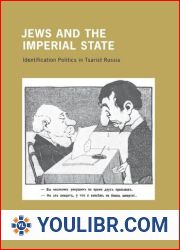
 49
49  2 TON
2 TON

